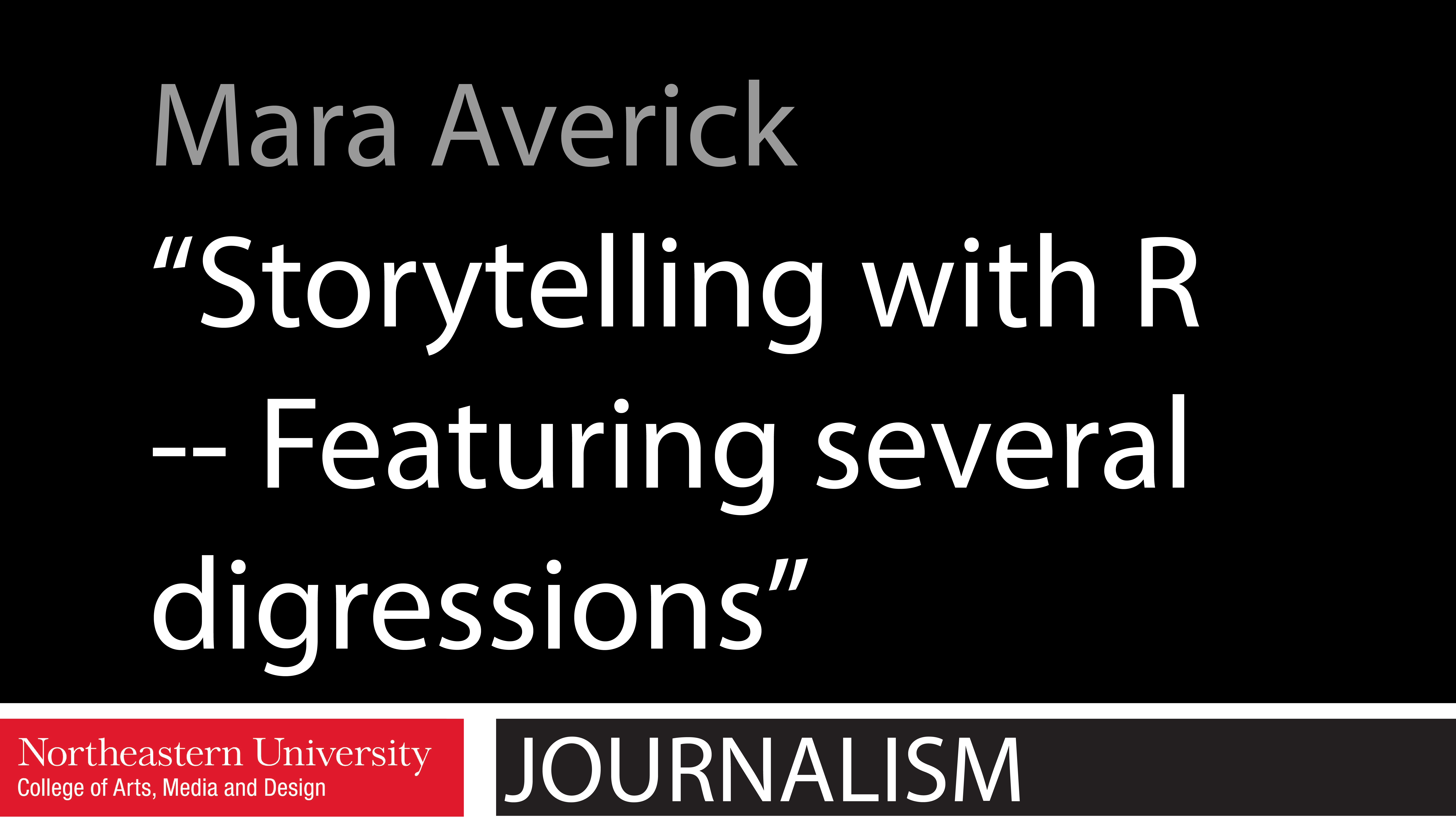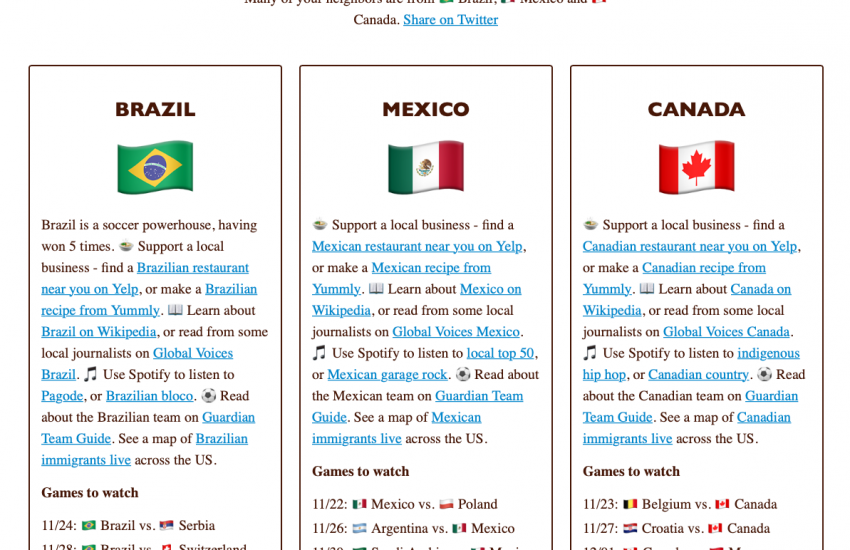“Storytelling with R – featuring several digressions”
For Mara Averick, the words “R,” “tidyverse” and “ggplot” are all part of her regular vocabulary. For people with less knowledge about data science or the language R, those words might be foreign geekspeak. As a tidyverse dev advocate at RStudio, Averick says she hopes to make this kind of technical jargon “understandable by outsiders or the general public.”
Averick shared her tips and tricks for telling stories with data at “Pizza, Press & Politics,” a lunchtime speaker series at Northeastern University, sponsored by the School of Journalism.
Averick majored in science and society studies at Brown University and said that the interdisciplinary nature of that discipline led her to develop an interest in putting science in context.
Averick insists that she is “not a real data scientist.” Rather, she says her “job is to deal with the English–squiggly divide.” By “squiggly,” she is referring to code that is part of the language of data storytelling.
“R Studio and tidyverse are my favorite tools,” said Averick. She calls these “human centered tools” that allow people to “visualize, model and transform.” Averick believes that R’s ability to present data in context is what makes it such a powerful storytelling tool.
Occasionally, stories do not connect with the general public. Averick recalled the time she and Netflix’s senior data visualization engineer Elijah Meeks created a visualization for Archer, the popular animated show. She says she spent months “literally transcribing the entire show.” But after posting it on Reddit, she was disappointed to see that the visualization did not provoke the interest she and Meeks thought it deserved.
“We really hadn’t made it with an audience in mind,” she said. “Despite the fact that their was this major visualization, there really was no storytelling.”
It was a lesson she still carries with her. Averick suggests annotating data to help people understand what it means.“Share your expertise,” she said. “Data doesn’t speak for itself for everyone.”
- “Storytelling with R – featuring several digressions” - April 5, 2019





